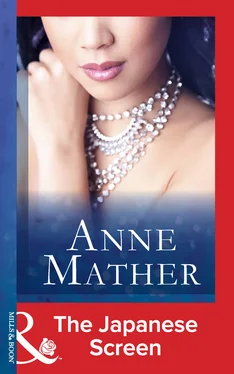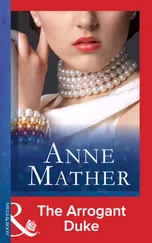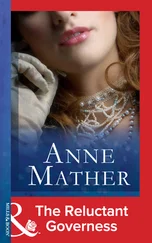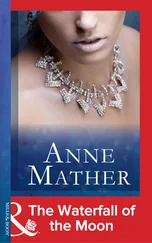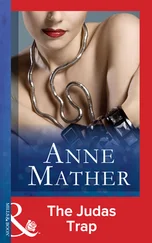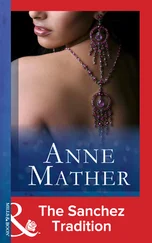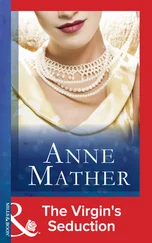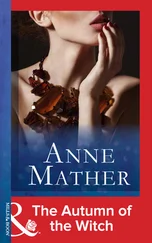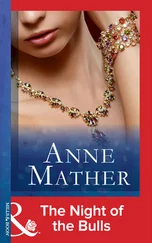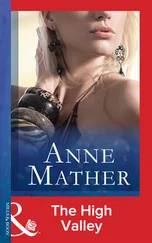Susannah leant forward and then smiled. ‘Oh, no, Eduardo, that’s not St. Paul’s. That’s just a church. St. Paul’s is bigger, much bigger.’
‘Perhaps you would permit me to escort you both there another day,’ suggested Fernando. ‘Perhaps tomorrow?’
As soon as the words were uttered he wondered why he had said them. He had been reluctant to come out this morning. What was he thinking of – suggesting yet another visit to the Castana house?
Susannah King was looking at him strangely too. Perhaps she suspected some ulterior motive for his suggestion. He cursed himself for putting himself in such an ambiguous situation.
‘That’s very kind of you, señor ,’ she was saying now, ‘but Eduardo has lessons tomorrow.’
Eduardo’s face dropped and the relief Fernando should have felt did not materialize. Instead, he found himself saying: ‘You give Eduardo these lessons, Miss King?’
‘Yes.’
‘You are then the boy’s – governess?’
‘That’s right,’ she nodded.
‘But I do not understand. Yesterday evening you were acting as nursemaid.’
She sighed. ‘Señora Castana has no nursemaid for Eduardo. She says she likes to look after him herself. When she cannot, I – I cope.’
Fernando found this knowledge not to his liking. Back home in Spain one employed a governess to teach, a nursemaid to care for the child’s welfare. Lucie knew this as well as he did. Surely they were not so short of financial assets that they could not afford both. But no. The Castanas were a wealthy family. It was much more likely, though not so palatable, that so long as Miss King was prepared to accommodate them they preferred to save a second salary.
They were driving now beside the green stretches of Regent’s Park, and Fernando leant forward and signified to the driver that they would walk the rest of the way. Susannah and the boy climbed out, Fernando paid their fare, and the cab rolled away.
It was a cool but pleasant morning in early April. Spring was in the air and the park was colourful with tulips and daffodils and narcissi. Even at this time of day there were plenty of people about, nannies with their charges, young mothers with prams, dogs and their owners enjoying the unexpectedly warm sunshine. They walked along the path towards the zoological gardens and conversation between them lapsed. Only Eduardo seemed unaware of the fact, exclaiming every now and then when a dog ran near to them or a child with a particularly interesting toy attracted his attention.
Zoos had never appealed to Fernando. The idea of a collection of wild animals being confined in small spaces for the public to come and stare at seemed to him a rather cruel and degrading arrangement. But when he remarked upon this to Susannah King he found that she had very definite ideas of her own upon the subject.
‘Most of these animals were born in captivity,’ she exclaimed. ‘They’d be no more at home in the wild than – than say, you would be, cast away on some desert island, remote from all the sophisticated accoutrements to civilized society you’ve grown used to.’
Fernando smiled. ‘And how do you know how I would react to such circumstances?’ he commented with a trace of irony. ‘I might find such a situation intriguing – de-pending, of course, on my companion.’
He saw the rose colour flood her cheeks. He was surprised at how easily he could embarrass her. So self-confident in some ways, in others she was extremely vulnerable, and the knowledge troubled him. He found himself wondering about her background, whether she had any home life, whether her parents were still alive – and then stopped himself. This would not do. After today, he would probably never see her again, which was just as well. He was becoming far too interested in her. He was leaving England at the end of the week. He was returning to his home in Spain – to his own family.
He noticed that after that she did not speak to him directly for some time, but concentrated on Eduardo, pointing out different species, explaining their various eating habits. Fernando was quite content to stroll along behind, answering Eduardo’s questions only when they were addressed to him.
It was after one o’clock when Susannah seemed to become aware of the lateness of the hour, and casting a doubtful look in Fernando’s direction said: ‘I think Eduardo ought to have a drink and something to eat, señor. Could we go to the café and have a sandwich?’ Fernando hesitated. The café, within sight and sound, not to mention smell, of the animals did not appeal to him. ‘I suggest we leave the gardens and find a restaurant, señorita . Eduardo has seen almost everything, has he not? Perhaps this afternoon we might do something else, si ?’
‘ Que ?’ Eduardo stared at them both excitedly. ‘ Que le parece, señorita ,’ he appealed. ‘ Tengo mucha hombre!’
‘Speak English, Eduardo,’ reproved Susannah automatically, and then gave a small shrug of her shoulders. ‘I don’t know what to say, señor. ’
Fernando cupped her elbow with his hand. ‘Then I suggest you leave everything to me,’ he remarked quietly. ‘Eduardo is hungry. Were he and I alone, we would most certainly dine at a restaurant of my choosing. Your company simply makes that a more attractive proposition.’ Susannah drew herself away from him quickly, and he could see she was embarrassed again. For himself he was conscious of a distinct feeling of exhilaration in his stomach brought about by the trembling he had felt in that instant before she drew herself away.
They went to a Spanish restaurant in a mews off Oxford Street. It was a place Fernando frequented regularly on his visits to London, and he was recognized at once. The service was efficient, but unobtrusive, and he noticed that Susannah seemed to enjoy the onion soup, the chicken and rice, and the fruit-filled icecream which they ate as a dessert. They had a rosé wine with the meal, and even Eduardo drank his with enjoyment. Afterwards, the waiter brought coffee, and a liqueur for Fernando which Susannah had declined. Eduardo was excused and wandered off to examine an enormous aquarium filled with tropical fish which was an integral part of the wall near the entrance to the restaurant, and Fernando asked whether Susannah would mind if he lit a cheroot.
She shook her head. He could see that she was nervous and endeavoured to put her at her ease, talking about Spain in general terms, discussing the wine-growing industry of which his family had been members for generations.
‘I know very little about wines,’ she admitted, cradling her coffee cup between her fingers. ‘They’re not considered a natural accompaniment to a meal here – at least, not where I come from.’
‘Where do you come from, Miss King?’ Fernando questioned, unable to prevent himself from doing so.
She put down her cup. ‘I was born in Yorkshire, actually. That’s in the north of England. But when I had completed my training I came south to work.’
He drew deeply on his cheroot, exhaling into the air above her head. ‘Your parents still live in Yorkshire?’ he suggested.
‘No. My parents are dead.’ She sighed. ‘Actually, I never knew who my parents were. I lived in an orphanage until I was sixteen years old – a children’s home is how they like to describe it.’
‘You sound – bitter.’
‘Oh, no, no.’ She shook her head. ‘I’m not bitter. They were very good to me, actually. I just don’t think it’s fair that women should have babies and then – abandon them. If I had a child, I’d want to care for it myself.’ She flushed. ‘Where is Eduardo?’
‘Eduardo is quite happy watching the fish,’ replied Fernando, impatient at the interruption. ‘Go on. I’m interested.’
Читать дальше
